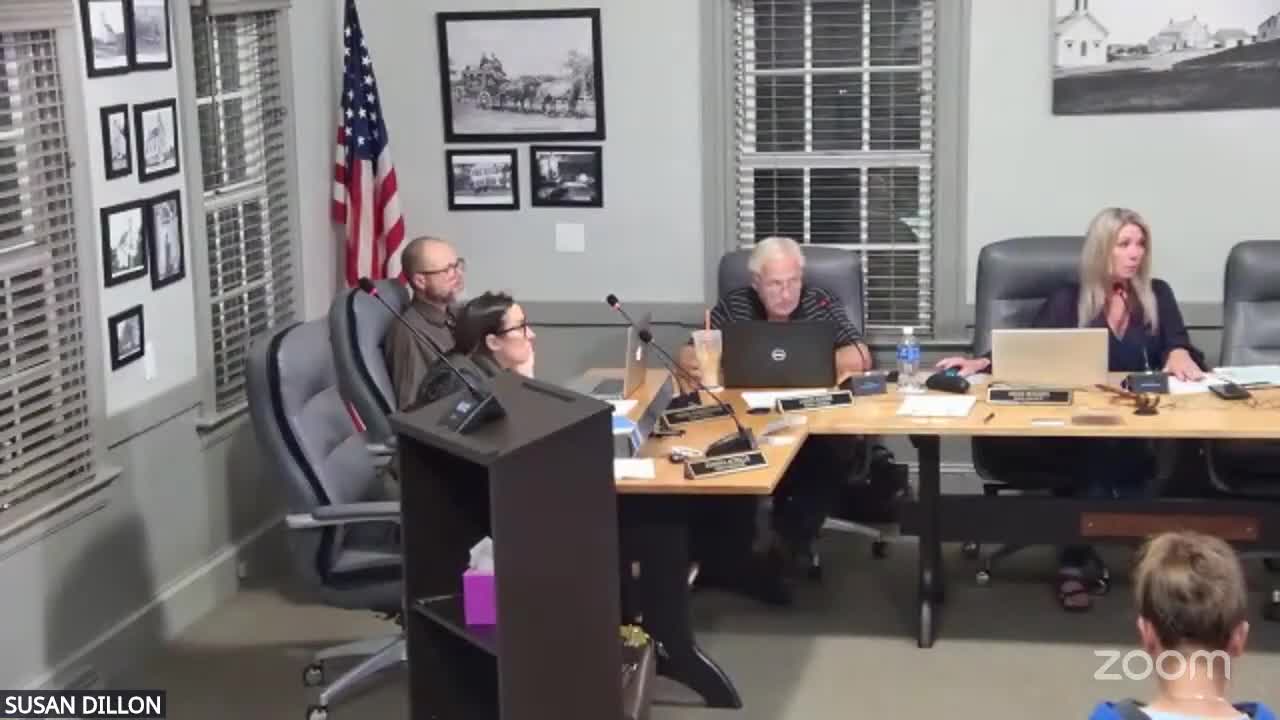Municipal fellow outlines housing plan and next steps; council and residents press for data and safeguards
Get AI-powered insights, summaries, and transcripts
Subscribe
Summary
Municipal fellow Jeffrey Poland reviewed six months of work on housing objectives including RFPs, tax-sale parcels and a draft housing chapter while residents and a state senator raised concerns about ADUs, septic capacity and developer control.
Jeffrey Poland, the town’s municipal fellow, summarized six months of work on Oct. 9, 2025, describing a 24‑month contract with five core goals: expand housing stock and diversity, engage developers and state agencies, lead public education, update the comprehensive plan’s housing chapter (including a low- and moderate-income needs assessment), and seek infrastructure grants for redevelopment.
Why it matters: Poland’s work aims to identify town-owned parcels and potential developer partners, prepare the town for state affordable-housing requirements and pursue grants and infrastructure (including wastewater) that would allow added residential development while preserving Foster’s rural character.
Poland told the council the scope requires drafting at least two RFPs for housing development, surveying town-owned properties and coordinating with agencies including Rhode Island DEM and the Army Corps on reuse and possible remediation of the former Nike site. He said the state’s current “10% low- and moderate-income” target is driving municipalities to prepare needs assessments and that the state is working on a formula to adapt targets for rural towns.
Poland said he has produced title reports, preliminary environmental assessments, a multifamily inventory, and a gap analysis; he has submitted grant applications to survey three town-owned properties and is following up with Rhode Island Housing on developer contacts. He also proposed a housing task force and said the housing chapter update will include measurable goals and timelines.
Councilors and residents asked for more specificity about tax impacts, school capacity, timelines and whether accessory dwelling units (ADUs) would count toward affordable-unit targets. State Sen. Gordon Rogers, who also serves locally as highway director, warned councils to “control it or it will control you,” urging care with ADU rules and noting non–owner-occupied ADUs can be built by investors who then increase housing stock rapidly. Poland agreed public education and careful developer outreach are priorities and said he is coordinating with the town planner on survey methodology to ensure valid results.
Poland flagged three principal challenges: inconsistent local housing data; rural character that limits some affordable-housing models; and legal delays tied to foreclosure and conveyance of tax-lien properties. His near-term plan includes publicly available council briefing packets on school capacity, tax impacts and cluster development benefits, continued state coordination on potential remediation of the Nike site, and refined outreach to developers and Rhode Island Housing.
Poland said some town-owned parcels are primarily wooded and one co-owned parcel requires foreclosure of the right of redemption before conveyance can be completed. He also noted the possibility of forming a wastewater management district—an option to monitor and maintain septic systems to support redevelopment—if funding and legal structures permit. Residents asked for follow-up briefings that quantify tax and service impacts before any proposal proceeds to zoning or borrowing votes.
Poland concluded that the work will be multi-year, and he urged measured outreach and data-driven public education to evaluate possible projects.
